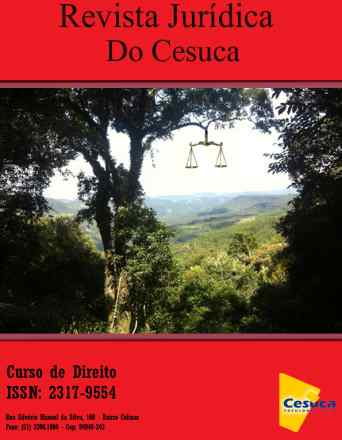IMPLEMENTANDO UM INSTRUMENTO INTERNACIONAL PARA A INTERPRETAÇÃO DAS LIMITAÇÕES E EXCEÇÕES AOS DIREITOS DE AUTOR
REVISTA JURÍDICA DO CESUCA
IMPLEMENTANDO UM INSTRUMENTO INTERNACIONAL PARA A INTERPRETAÇÃO DAS LIMITAÇÕES E EXCEÇÕES AOS DIREITOS DE AUTOR
Autor Correspondente: C. GEIGER | [email protected]
Palavras-chave: limitações, direito autoral, TRIPS
Resumos Cadastrados
Resumo Português:
Normas relativas à s limitações e exceções no Direito de Autor Internacional, especialmente aquelas previstas no Acordo TRIPS, foram interpretadas, no passado, de forma não equilibrada pelo Painel do Órgão de Solução de Controvérsias da Organização Mundial do Comércio (OMC), gerando grande descontentamento nos cÃrculos acadêmicos. A releitura das exceções e limitações aos direitos de autor, conforme realizada pelo OSC não estava sequer em conformidade com os princÃpios de interpretação do Direito Internacional Público. Como reação, foram sugeridas interpretações alternativas objetivando respeitar os interesses que emergem dos direitos humanos e das liberdades fundamentais, assim como interesses na proteção da concorrência nos mercados e outros interesses públicos.
Resumo Inglês:
Limitations and exceptions provisions in international copyright law, especially in the TRIPS Agreement, have in the past been interpreted by the WTO Panel in an unbalanced manner, leading to great disapproval in academic circles. It appears that the reading of the limitations and exceptions provisions by the WTO dispute settlement body was not compliant with principles of interpretation of public international law. As a reaction, many attempts were made to propose alternative interpretations that respect interests deriving from human rights and fundamental freedoms, interests in competition and other public interests. One prominent example is the “Declaration on a Balanced Interpretation of the ‘Three-Step Test’ in Copyright Lawâ€, elaborated by a group of 26 scholars in a research project co-ordinated jointly by the Max Planck Institute for Intellectual Property, Competition and Tax Law in Munich and Queen Mary, University of London (International Review of Intellectual Property and Competition Law (IIC) 2008, p. 707). This declaration explores the flexibilities left by the TRIPS Agreement and the international legal framework. It proposes, in order to reach balanced solutions, to “rethink†one very important (if not the main) provision related to limitations and exceptions to exclusive rights, commonly known as the “Three-Step Test†(Arts. 13, 17, 26(2) and 30 TRIPS). This article argues that this initiative should now be taken one step further and that a legal instrument should be integrated into international law, safeguarding and clarifying a balanced interpretation of the limitations and exceptions provisions in copyright law.

